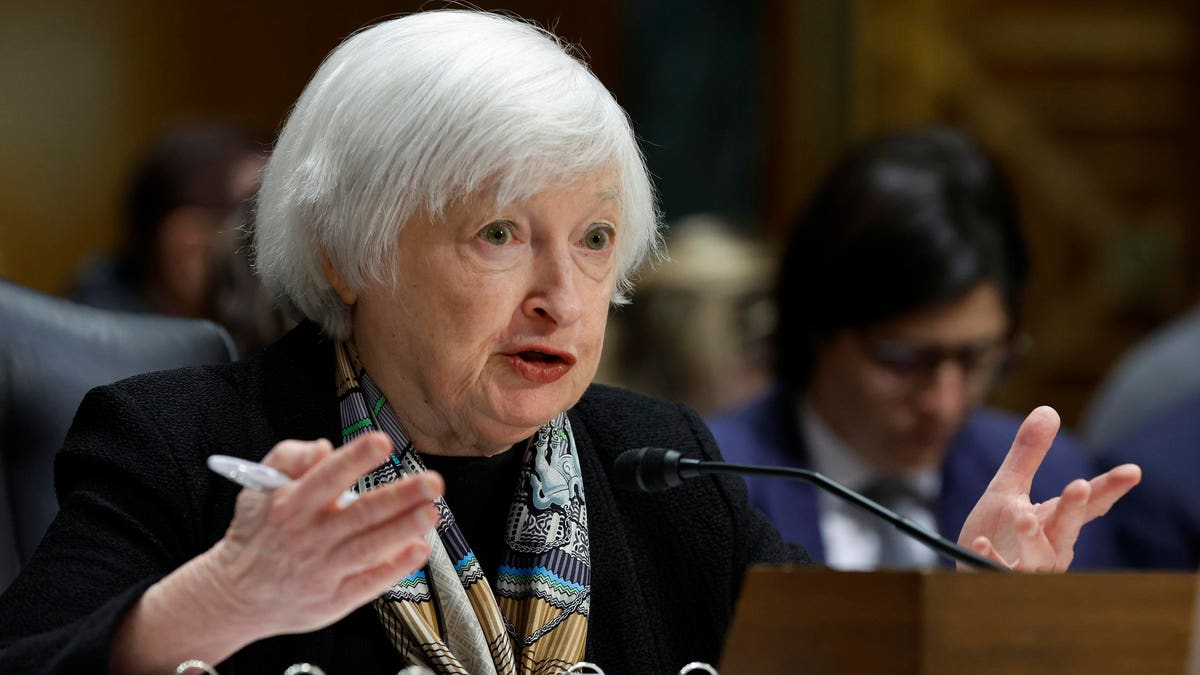Topline
Treasury Secretary Janet Yellen doubled down on her June 1 deadline for raising the debt ceiling Monday—warning House Speaker Kevin McCarthy (R-Calif.) in a letter the U.S. could default on its debt if lawmakers do not respond quickly, after Republicans voiced doubt about whether the federal government’s so-called X-date will actually be so soon.
Key Facts
Yellen first provided the deadline early this month—taking much of Congress by surprise since the deadline came weeks earlier than other estimates, and providing little time for congressional leaders to reach a deal with the White House to raise the borrowing threshold.
Senate Republicans have doubted the estimation’s accuracy, with Sen. John Kennedy (R-La.) telling Axios “nobody believes” the U.S. will reach the X-date—the day the Treasury Department will no longer be able to pay the nation’s bills—by June 1.
Yellen’s message to McCarthy cited harm to business and consumer confidence, short-term borrowing costs and the U.S. credit rating as a reason for why Congress should avoid raising or suspending the debt limit at the last minute.
Contra: The letter noted that the actual X-date could be a “number of days or weeks later” than the estimates—in line with comments Yellen made to Congress earlier this month. Budget experts have projected that if sufficient resources can be scraped up by the government to pay its bills through mid-June, an influx of quarterly tax receipts could provide some temporary breathing room, according to The New York Times. Goldman Sachs wrote in early May that it believed the Treasury would more than likely not be able to pay its bills until late July without a debt limit increase—a deadline that could change to June if tax collections come up short.
Key Background: The previous deadline, according to the Congressional Budget Office, ranged from July to September. The federal government’s debt currently sits at $31.4 trillion. If not handled properly, the fallout could impact multiple facets of the government, from Social Security payments and military salaries to the country’s credit score. Financial markets and American jobs could also take a hit from a debt default—one that could result in the loss of nearly 6 million jobs and a stock market fall off of almost one-third, according to Moody’s Analytics. McCarthy and President Joe Biden have struggled to reach a deal, as Republicans demand spending cuts in exchange for raising the debt ceiling while the White House says potential spending cuts should be discussed separately as a budget issue. McCarthy told reporters Monday that it seemed more like the White House and Democratic leaders wanted a default instead of a deal, accusing them of wanting to “look like they’re in a meeting,” when really, “they’re not talking [about]
anything serious.” The White House has repeatedly accused the GOP of unnecessarily putting the economy at risk through spending cut demands in debt ceiling talks.
Crucial Quote: “I think the ceiling is more like [the] end of July, sometime in August,” Kennedy told Axios.
:
US may default on debt as soon as June 1, Yellen reaffirms (CNN)
Yellen Reiterates That the U.S. Could Run Out of Cash by June 1 (The New York Times)
GOP Senators Say ‘Nobody Believes’ Yellen’s June 1 Debt Ceiling Deadline—Here’s Why They Might Be Right (Forbes)
Read the full article here


